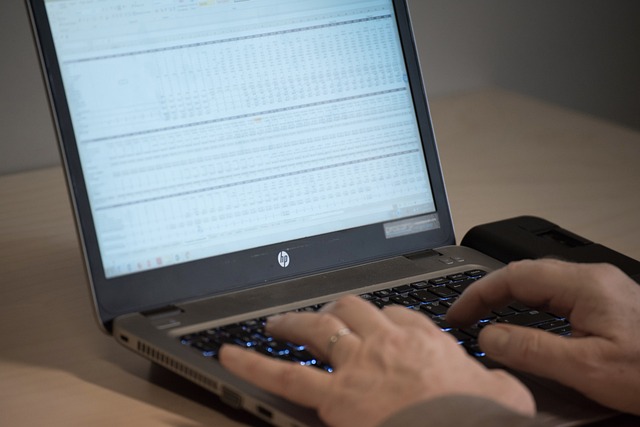The Importance of Building an Emergency Fund
In the realm of personal finance, one concept stands out as a fundamental pillar of financial security: the emergency fund. Many people often overlook this vital component, assuming they can tackle unexpected expenses with credit or loans. However, having an emergency fund plays a crucial role in ensuring you can navigate life’s uncertainties without incurring debt. Whether you’re facing sudden medical bills, unexpected car repairs, or job loss, an emergency fund equips you to handle these situations with confidence.
When we think about managing our finances, we often focus on investments, savings accounts, or retirement plans. Yet, it’s the emergency fund that acts as a safety net, catching us when life’s unpredictability throws us off balance. While there is no one-size-fits-all rule for how much money you should store in this fund, financial experts generally recommend saving three to six months’ worth of living expenses. This guideline allows for adequate coverage during various scenarios. However, individual circumstances play a significant role in how much you need to save. For instance, someone who works in an unstable job market might feel more secure with a larger fund.
Understanding Your Financial Needs
To build an effective emergency fund, you first need to assess your financial situation. Start by calculating your monthly expenses, including rent or mortgage, utilities, grocery bills, insurance, and transportation. When you have a comprehensive view of your expenses, you can set a realistic savings goal for your emergency fund. Understanding this information empowers you to tailor your savings strategy accordingly. For instance, if your monthly expenses are $3,000, having a fund of $9,000 to $18,000 would provide a buffer in case of unexpected events.
Next, consider your income stability. If you work freelance or are self-employed, you may want to save more aggressively than someone with a steady job. Job security greatly influences how much risk you are willing to take. When you have a reliable income source, your confidence in managing finances increases. In contrast, fluctuations in income can heighten anxiety regarding savings and necessitate a more robust emergency fund. Basing your financial strategy on your personal circumstances ultimately leads to a greater sense of control.
The Psychological Benefits of an Emergency Fund
Having an emergency fund does more than just offer financial protection; it fosters emotional well-being as well. The peace of mind that comes from knowing you have savings set aside for unforeseen expenses reduces anxiety. This crucial mental clarity allows you to focus on achieving other financial goals, such as saving for retirement or purchasing a home. When life throws a curveball your way, and you lack an emergency fund, you may experience overwhelming stress. Conversely, with a safety net in place, those unexpected events become less daunting.
Consider this: when you have prepared yourself financially, you instill a sense of empowerment over your life choices. You cultivate the ability to make decisive decisions without the looming fear of financial ruin. In fact, studies show that financial stress can negatively impact mental health in various ways. By prioritizing your emergency fund, you actively contribute to your overall well-being. Keeping your emotional health in check is as essential as maintaining your financial health.
How to Start Building Your Emergency Fund
Embarking on the journey of building your emergency fund may feel like a daunting task, especially if you’re starting from scratch. However, taking the first step is crucial, and there are several strategies that can simplify the process. Begin by identifying areas in your budget where you can cut back. For instance, consider reducing dining out, canceling unused subscriptions, or finding cheaper alternatives for your regular expenses. Every small saving adds up, and reallocating these funds toward your emergency savings can create impactful growth over time.
An effective approach is to automate your savings. Setting up a direct deposit from your paycheck into your emergency fund can help you save without even thinking about it. This way, you consistently contribute to your fund. You might choose to open a high-yield savings account specifically for your emergency fund, which can potentially earn you some interest over time and help your savings grow faster. By making your savings habitual, you reduce the chances of spending those funds mindlessly.
Where to Keep Your Emergency Fund
Choosing the right place to store your emergency fund is a vital decision. Ideally, you want a savings vehicle that provides easy access, while not offering too much temptation to withdraw funds for discretionary spending. A high-yield savings account is usually a solid option. This type of account typically earns a better interest rate than traditional savings accounts, thus helping your money work harder for you. Look for accounts that have no monthly fees and allow you to access your money whenever you need it—this makes it an ideal choice.
Another option you may consider is a money market account. These accounts often offer higher interest rates than standard savings accounts, making them an attractive option to keep your emergency fund accessible yet earning interest. However, always review the terms and conditions, as some accounts may limit transactions or require minimum balances. A credit union can also be an excellent choice, often providing competitive rates and lower fees compared to traditional banks. By carefully choosing where to keep your emergency fund, you maximize both security and growth potential.
When to Use Your Emergency Fund
Understanding when to tap into your emergency fund is just as crucial as building it. This fund exists specifically for unplanned, bona fide emergencies. Common situations warranting the use of this fund include medical expenses not covered by insurance, urgent home repairs, job loss, and other unavoidable costs. However, you should refrain from using this money for everyday expenses, vacations, or purchases that can be planned. Establishing this boundary helps ensure your fund remains intact for when you genuinely need it.
It’s also vital to have a plan for replenishing your emergency fund once you’ve used it. Life can throw plenty of surprises your way, making it essential to refocus on your savings goal after tapping into your resources. A good practice is to sit down and reassess your budget right after an emergency expenditure. Identify new areas where you can save more or temporarily reduce discretionary spending until you reach your original savings level.
Common Mistakes to Avoid When Building an Emergency Fund
While building your emergency fund is a commendable step toward financial security, several pitfalls can hinder your progress. One common mistake people make is underestimating the amount they actually need to save. Disregarding special circumstances, such as having dependents or being in a volatile job industry, can lead to inadequate savings. Take an objective view of your finances to determine a realistic figure that will cater to unforeseen events effectively.
Another prevalent error is saving in accounts that don’t offer sufficient liquidity. For instance, tying your savings up in long-term investments can be counterproductive. If you face an emergency, you might find yourself either incurring early withdrawal penalties or waiting too long to access your funds. Additionally, failing to treat your emergency fund as a priority can lead to delays in saving that result in accumulating further debt. Make a firm commitment to your financial safety net, and allocate resources accordingly.
The Long-Term Effects of Maintaining an Emergency Fund
Establishing an emergency fund sets the stage for a more stable financial future. By investing time and effort in building this safety net, you lay the groundwork for achieving broader financial goals. When unexpected events arise, you can avoid resorting to high-interest loans or credit cards that can lead to crippling debt. Instead, with your emergency fund in place, you are empowered to make informed choices.
Consider the long-term effects of emotional stability as well. Know that financial stress impacts not only your bank account but also your relationships and overall happiness. When you feel secure in your finances, you project that confidence into your personal life and professional interactions. Building an emergency fund cultivates a healthier mindset and a proactive approach to potential monetary challenges. After all, who wouldn’t want to trade financial anxiety for peace of mind?
Incorporating an Emergency Fund into Your Broader Financial Strategy
Once you’ve established your emergency fund, consider how it fits into your larger financial picture. Having a safety net allows you to pursue your financial goals more aggressively, such as saving for retirement or investing. With a solid emergency fund behind you, you may feel more inclined to invest since your immediate expenses are covered. You can explore various investment vehicles, knowing that you won’t have to liquidate assets quickly in a financial pinch. This strategic mindset elevates your entire approach to personal finance.
Moreover, understanding the interplay between your emergency fund and debt management is crucial. If you find yourself with high-interest debts, such as credit card debt, you might allocate a portion of your cash flow toward eliminating that debt while maintaining a small buffer in your emergency fund. Balancing savings and debt repayments will help you achieve financial independence without sacrificing the security that comes from having an emergency fund.
Frequently Asked Questions
1. What is an emergency fund?
An emergency fund is a savings reserve set aside for unexpected expenses. This fund provides financial security during situations like job loss, medical emergencies, or urgent repairs.
2. How much should I save in my emergency fund?
Financial experts recommend saving three to six months’ worth of living expenses. However, the specific amount can vary based on individual circumstances, such as job security and personal comfort levels.
3. Where should I keep my emergency fund?
It’s advisable to store your emergency fund in a high-yield savings account or a money market account. These options provide easy access and the ability to earn interest while safeguarding your funds.
4. When should I use my emergency fund?
You should use your emergency fund for genuine emergencies, such as medical bills, essential home repairs, or unexpected job loss. Avoid dipping into this fund for planned expenses or wants.
5. How can I start building my emergency fund?
Begin by assessing your monthly expenses and cutting back on discretionary spending. Automate your savings, and consistently contribute to the fund until you reach your goal. Every small contribution makes a difference!



